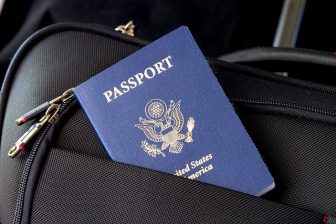 In an increasingly globalised business environment, the ability to effectively verify the identity of international clients is paramount. This is especially critical for the UK property market, where the number of properties owned by overseas individuals has more than doubled since 2010, according to the Centre for Public Data.
In an increasingly globalised business environment, the ability to effectively verify the identity of international clients is paramount. This is especially critical for the UK property market, where the number of properties owned by overseas individuals has more than doubled since 2010, according to the Centre for Public Data.
Financial crime, such as money laundering and sanctions breaches, continues to damage the UK economy, costing an estimated £100bn annually and representing 2.5% of the UK’s Gross Domestic Product (GDP). Unfortunately, property is often used by criminals to “wash” illicit funds, with £6.7bn worth of suspicious money being invested in UK properties since 2016.
Recent data compounds this troubling trend: the number of property professionals who experienced financial crime jumped from 17% in 2022 to 27% in 2023. Nearly half of legal professionals and 42% of accounting firms also recorded increases in financial crime attempts last year.
As UK property firms now have more international customers than ever before, the risk of fraud and other financial crimes rises too, as it is much more difficult to verify somebody’s identity using foreign documents. Moreover, if a customer is a person established in a high-risk third country, they must be subject to enhanced due diligence (EDD) because of the higher risk of money laundering, bribery, fraud, and other types of financial crime.
While these checks are important, they can increase the burden on businesses which may already be stretched. The result is that too often, these checks aren’t carried out properly, increasing the chances of inadvertently working with a bad actor.
Leveraging comprehensive global compliance solutions can significantly enhance a property firm’s ability to detect fraud from international customers, while also minimising the draw on internal resources.
The challenge of international verification
As well as being potential fraud risks, international individuals are often considered to be higher risk due to the complexity and variability of their identification documents and the weaker verification processes traditionally available. To address this issue, these businesses need comprehensive global compliance solutions which take in to account the following:
Extensive data coverage: Having access to a wide array of high-quality data sources is vital to perform detailed checks internationally. This ensures that businesses can verify critical information such as name, address, date of birth, and national ID against reliable reference data at source.
PEPs and sanctions screening: Effective solutions must include screening for politically exposed persons (PEPs) and sanctions, along with ongoing monitoring and alerts for any changes. This continuous vigilance ensures compliance and readiness for audits, which is particularly crucial for property firms subject to stringent regulatory requirements.
Speed of delivery: Delivering instant verification results can significantly reduce the time, money, and resources spent on manual processes. Integration with existing customer databases through advanced technology further streamlines the onboarding process, allowing real estate firms to focus on their core competencies.
It’s time to get serious about verification
Effective digital verification solutions help mitigate the risk of fraud and financial crimes by ensuring clients are who they claim to be, regardless of their location. At the same time, it enables real estate businesses to grow their revenue by increasing trust and security, as well as delivering faster and better customer service.
Presently, 75% of property firms admit to not always conducting verification checks, and only 5% conduct daily client checks, making it the most at-risk industry sector.
With financial crime on the rise, businesses must take security and verification processes seriously. By employing comprehensive verification and internal security solutions, UK property firms demonstrate a commitment to transparency and integrity, building trust and credibility with current and potential clients both domestically and internationally. This commitment can lead to stronger long-term relationships and increased opportunities for collaboration and expansion.
As international buyers continue to come to the UK, property businesses must adapt by implementing comprehensive international verification processes. Failing to do so could have catastrophic consequences for both the UK’s economy, but also the level of trust in the industry itself. Of course, businesses who fail to properly follow regulations will also find themselves facing significant fines, and other potential punishments.
With technology continuously improving the solutions available, there is no reason why the property industry can’t get serious about international individual verification.
Nicola Gifford is general counsel at SmartSearch
Read the orginal article: https://propertyindustryeye.com/it-is-time-for-agents-to-get-serious-about-international-identity-verification/


